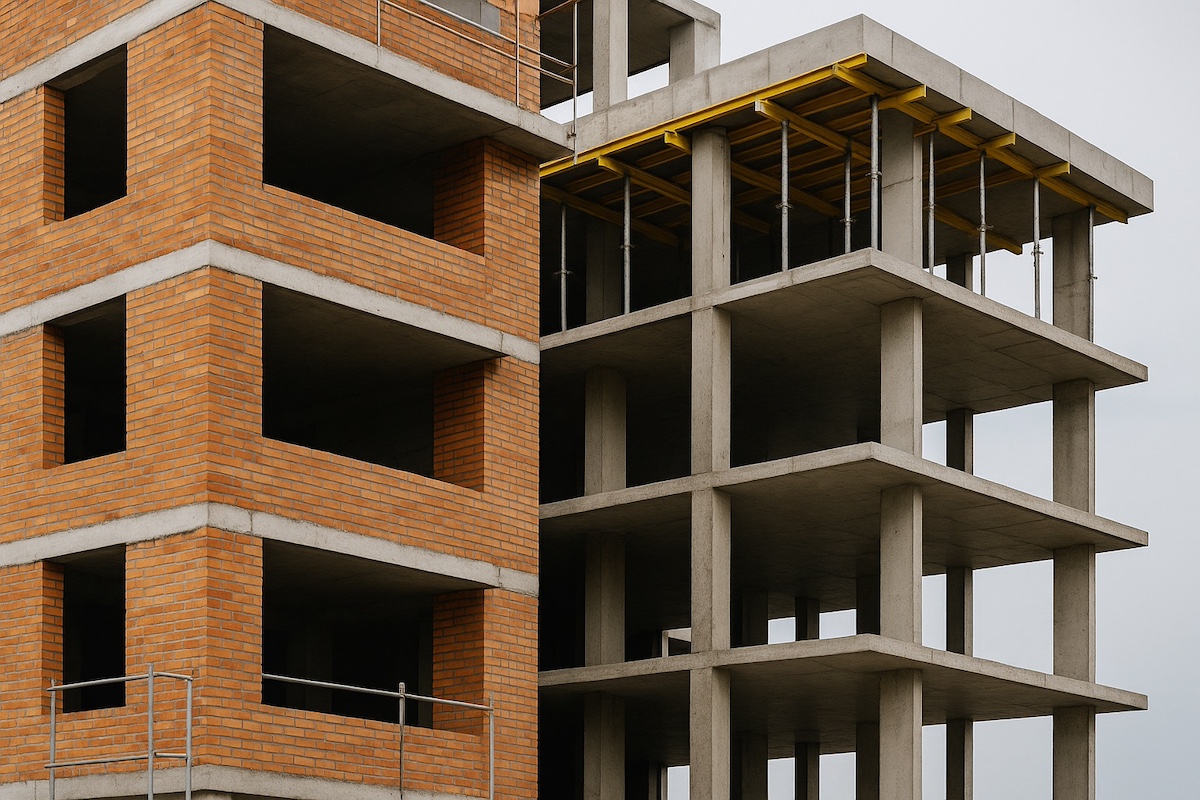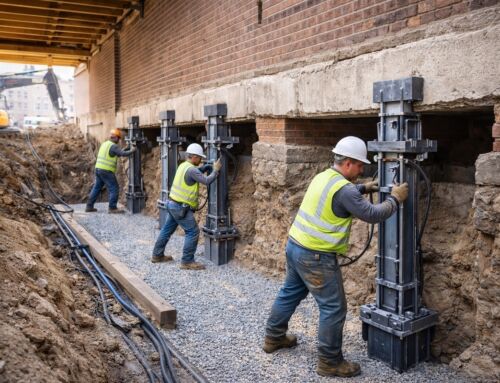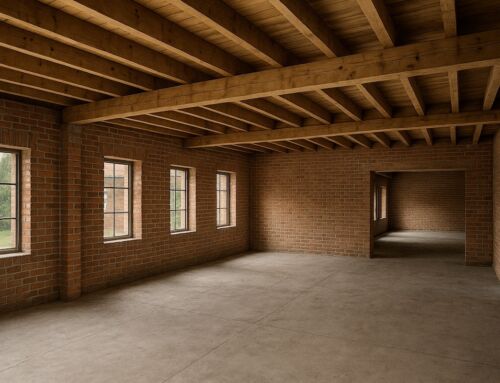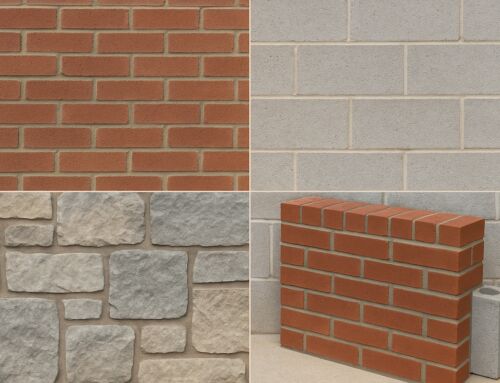When planning a commercial building, choosing the right material is one of the most important decisions. The choice impacts the building’s appearance, durability, cost, and long-term performance. Two of the most widely used options are masonry and concrete.
Both have proven their value in the construction industry, but they serve different purposes. This article explains their key differences, benefits, and best applications to help businesses, architects, and developers make smart choices.
What Is Masonry in Commercial Construction?
Masonry involves building with individual units such as bricks, stones, or concrete blocks. These units are joined with mortar to form strong, solid walls.
Key Features of Masonry:
- Durable and long-lasting
- Aesthetic appeal with textures, colors, and patterns
- Requires skilled masons for precise installation
Masonry is often slower to build since it’s laid unit by unit, but the result is structures with unique character and impressive longevity.
What Is Concrete in Commercial Construction?
Concrete is a composite material made from cement, aggregates, sand, and water. It can be poured into molds, shaped, and reinforced with steel to create structures of almost any size.
Common Types of Concrete:
- Reinforced concrete (RCC) with steel bars for added strength
- Precast concrete manufactured off-site for faster assembly
- Ready-mix concrete delivered fresh for immediate use
Key Features of Concrete:
- High load-bearing strength
- Versatility for modern designs
- Speeds up construction on large projects
Masonry vs Concrete: Key Differences
Composition
Masonry is made from individual blocks or stones, while concrete is poured and hardened into a solid mass.
Structural Strength
Masonry is strong under compression but weaker in tension. Concrete is stronger overall, especially when reinforced with steel.
Appearance
Masonry provides a classic, textured look. Concrete offers modern, sleek designs and flexibility in form.
Construction Process
Masonry requires skilled labor and more time. Concrete allows faster construction with mechanized processes.
Cost
Masonry involves higher labor costs. Concrete is more economical at scale.
Maintenance
Masonry needs occasional repointing of mortar joints. Concrete requires less upkeep but may crack if not cared for properly.
Benefits of Masonry in Commercial Construction
- Timeless visual appeal that adds value to buildings
- Excellent fire resistance for improved safety
- Natural thermal insulation for energy efficiency
- Strong soundproofing ideal for schools, offices, and hospitals
- Long lifespan when properly maintained
Benefits of Concrete in Commercial Construction
- Exceptional strength, especially for tall or large structures
- Faster construction with precast and ready-mix methods
- Flexibility to create modern, complex shapes
- Cost-effective for large-scale developments
- Resistant to fire, weather, and heavy use
Best Applications of Masonry
Masonry is best suited for storefronts and facades, educational and healthcare facilities, mid-sized office buildings, and heritage or decorative projects that require a traditional or detailed look.
Best Applications of Concrete
Concrete is ideal for high-rise buildings, industrial facilities, parking structures, and modern commercial spaces such as malls, airports, and stadiums.
Choosing Between Masonry and Concrete
The right choice depends on your project goals. Concrete is usually more economical and faster for large structures, while masonry is chosen for its character and aesthetics. High-rise and industrial projects often require concrete, while smaller or customer-facing buildings benefit from masonry. Climate, budget, and design intent should all guide the decision.
FAQs
What is the main difference between masonry and concrete?
Masonry is built with bricks, stones, or blocks, while concrete is poured and molded into shape.
Which is stronger: masonry or concrete?
Concrete, particularly reinforced concrete, is stronger overall. Masonry is mainly strong under compression.
Is masonry more expensive than concrete?
Yes, masonry often costs more because it requires more labor and time. Concrete is more affordable for larger projects.
Which lasts longer: masonry or concrete?
Both last for decades with proper maintenance. Masonry is known for historic longevity, while concrete is valued for its structural efficiency in modern builds.
Conclusion: Built Stronger with Dixon Inc
Both masonry and concrete have important roles in commercial construction. Masonry is the go-to choice for buildings where aesthetics, insulation, and timeless design are priorities. Concrete is preferred for projects that demand strength, scale, and efficiency.
At Dixon Inc, we understand the importance of choosing the right materials for each project. Our team has decades of experience delivering high-quality commercial construction, whether it’s detailed masonry work or large-scale concrete foundations. We focus on balancing performance, aesthetics, and cost to give our clients long-lasting results.
If you’re planning a commercial project, Dixon Inc is here to guide you. With us, you’re not just building a structure—you’re building smarter, stronger, and for the future.





